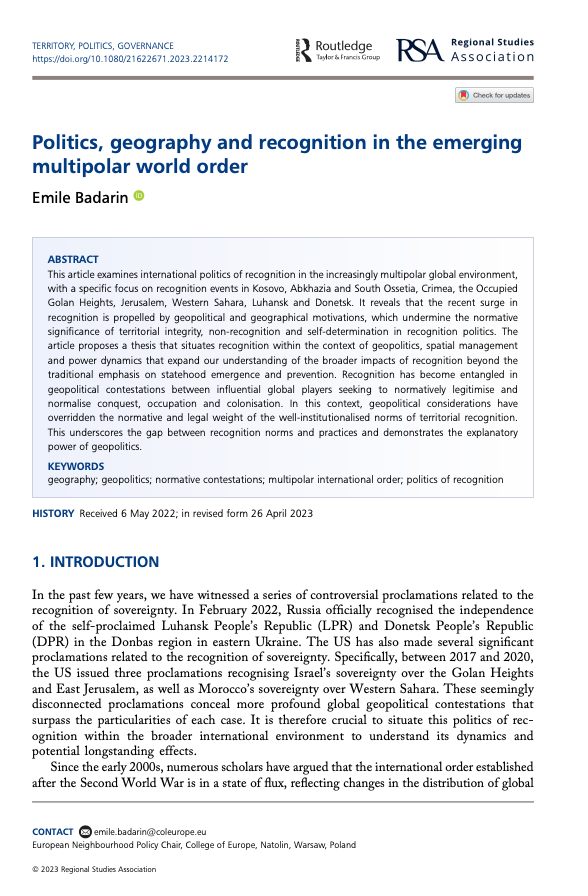This article examines international politics of recognition in the increasingly multipolar global environment, with a specific focus on recognition events in Kosovo, Abkhazia and South Ossetia, Crimea, the Occupied Golan Heights, Jerusalem, Western Sahara, Luhansk and Donetsk.
The article reveals that the recent surge in recognition is propelled by geopolitical and geographical motivations, which undermine the normative significance of territorial integrity, non-recognition and self-determination in recognition politics. The article proposes a thesis that situates recognition within the context of geopolitics, spatial management and power dynamics that expand our understanding of the broader impacts of recognition beyond the traditional emphasis on statehood emergence and prevention.
Recognition has become entangled in geopolitical contestations between influential global players seeking to normatively legitimise and normalise conquest, occupation and colonisation. In this context, geopolitical considerations have overridden the normative and legal weight of the well-institutionalised norms of territorial recognition. This underscores the gap between recognition norms and practices and demonstrates the explanatory power of geopolitics.
Cite as: Badarin, Emile 2023. “Territory, Politics, Governance, . “Politics, Geography and Recognition in the Emerging Multipolar World Order.” Territory, Politics, Governance, (13)3: 385–403.
